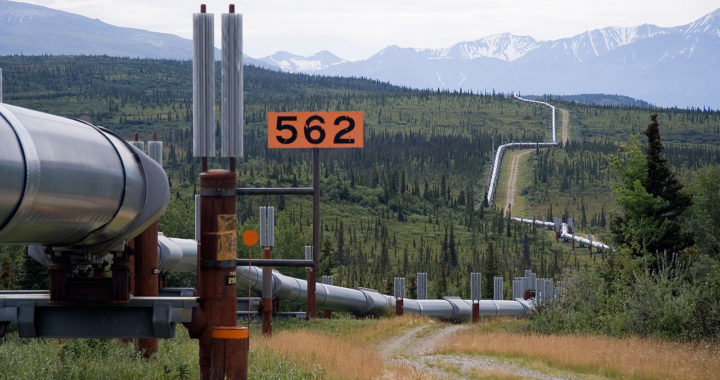Though most of the attention being paid to Alaska’s oil and gas landscape is focused on the controversial debate over whether to drill in the Alaskan National Wildlife Refuge, the state itself continues to yield impressive deposits of oil and gas outside that small stretch of land.
On Alaska’s north slope, a joint venture between Denver’s Armstrong Oil and Gas, Inc. and Spanish energy company Repsol SA has yielded an incredible discovery on a patch of land called “the Horseshoe”. An announcement from the companies claims they’ve discovered “the largest U.S. onshore conventional hydrocarbons discovery in 30 years.”
The statement went on to say that the find could yields as much as 1.2 billion barrels of “recoverable light oil.” Over the next four years, Armstrong — which owns about 75 percent of the Horseshoe — will continue to develop the find.
The Discovery Could Breathe Much-Needed Life Into Alaska’s Economy
Since 1977, Alaska’s North Slope has been a key component of the state’s overall financial well-being. At one point, Alaska was responsible for producing as much as a quarter of the United States’ oil. Unfortunately, oil extraction on the North Slope peaked in the 1980s and production has since declined at regular intervals.
In Alaska, that’s an especially big problem, because the state’s economy runs on different rules than the other states in the union. Though Alaska is twice the size of Texas, it counts just under 750,000 residents. That’s fewer people than Fort Worth. What’s more, none of Alaska’s residents are compelled to pay income or sales tax, which means that the state gets zero dollars from its residents. Instead, 90 percent of the state’s income is generated from taxes on the oil and gas industry.
In other words, when the oil and gas industry is flagging, so is the state’s economy.
A Large Contingent of Native Alaskans Support Oil and Gas
While there is obviously very vocal opposition to oil and gas development within Alaska, there is also a large number of citizens and Native Americans who support oil and gas development because of it’s positive contributions to the state. Former mayor Edward Itta used to count himself among those opposed to drilling and fracking, but once he took office, things changed. As he told NPR:
“My initial attitude had been not only no, but hell no. Over my dead body … [but our] tax base is based on oil and gas. There’s nothing else there. We have schools, airports, roads, landfills, health facilities, hospitals, decent homes which keep warm now and have light and power, which when I grew up we didn’t have.”
The discovery from Armstrong and Repsol SA should be great news to residents of not only the North Slope, but the entire state of Alaska. Armstrong’s commitment to the project will inject a consistent flow of funds into the area for the next several years.

